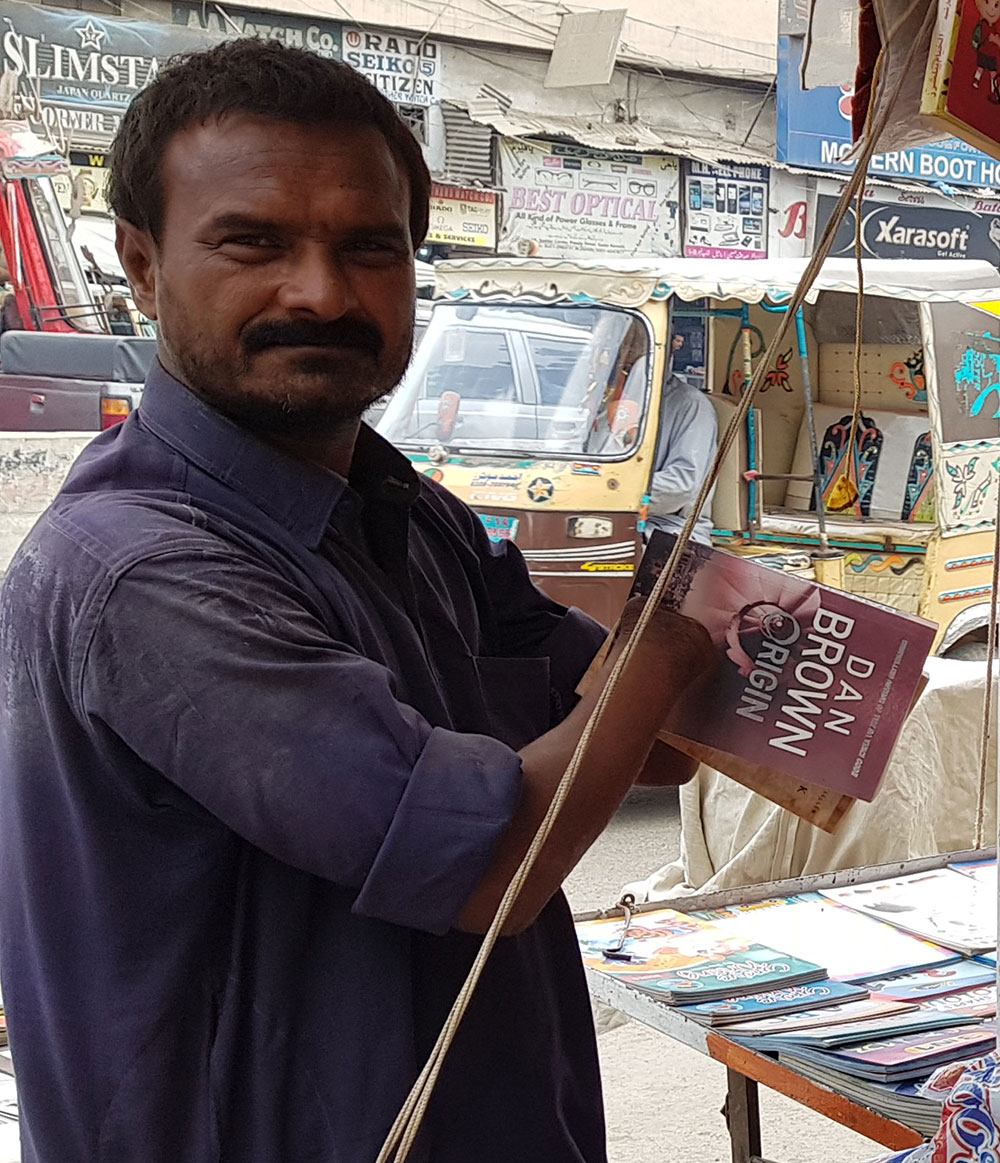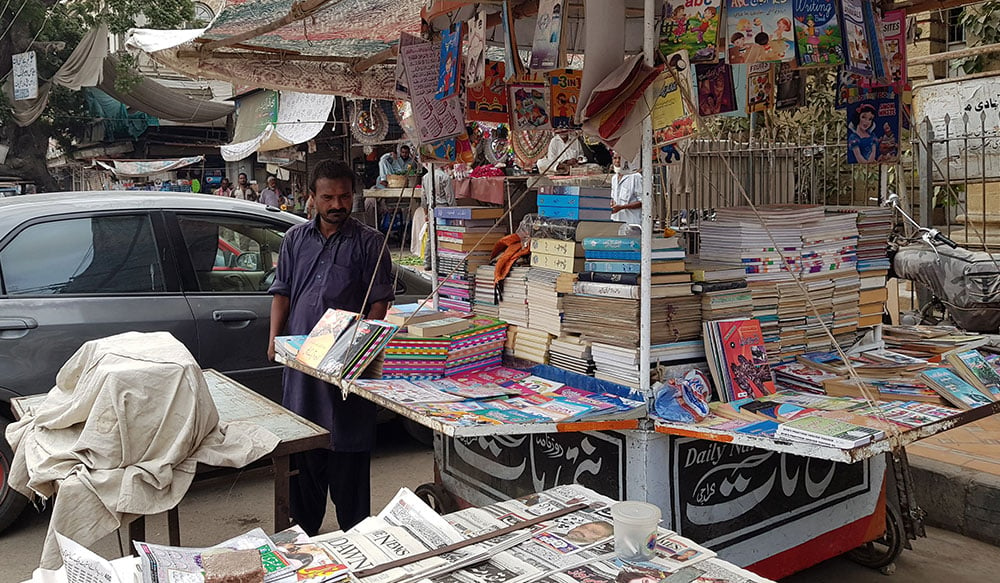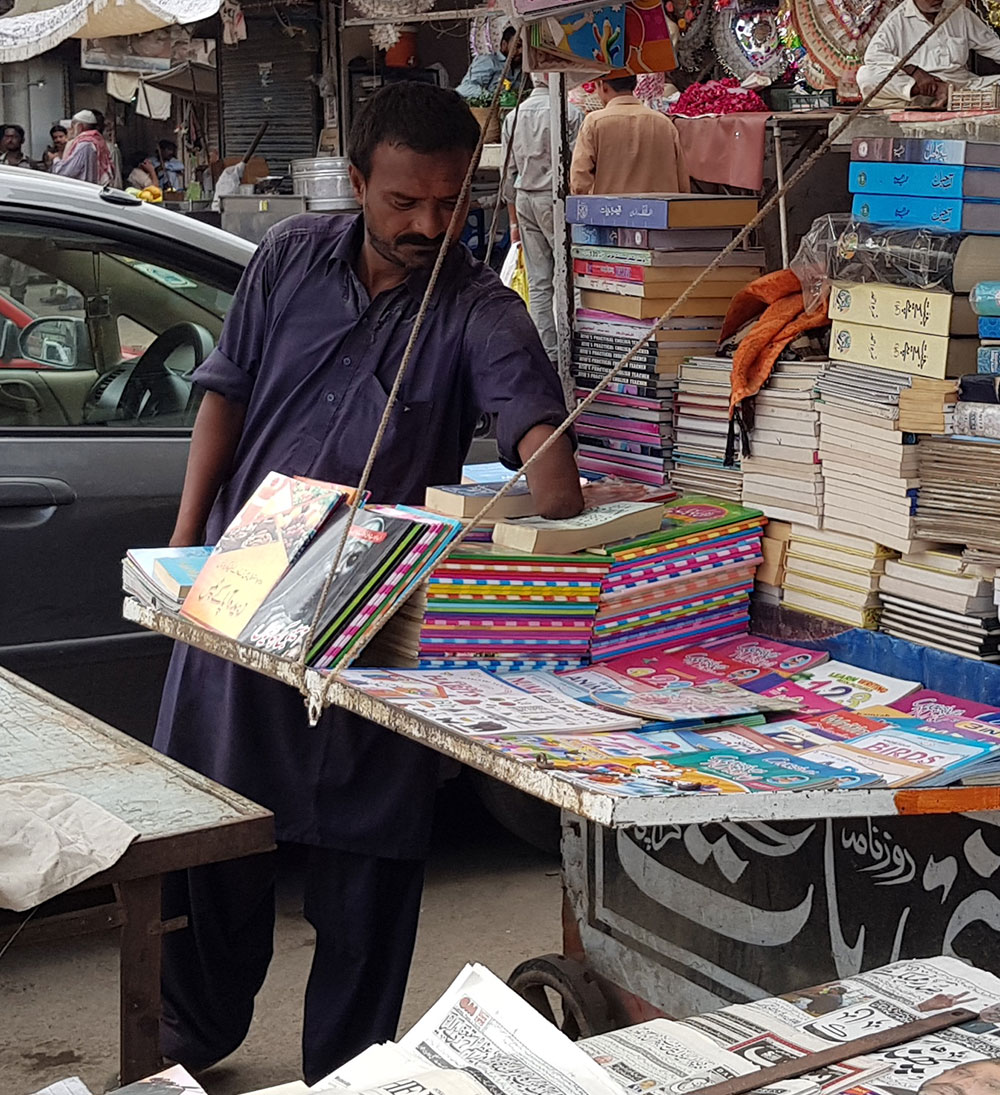KARACHI: Located on a crowded street in the Saddar area of Karachi is the bookstall of Sikander Hayat whose story is one of determination. Hayat lost his hands to an accident when he was 10-years-old in his hometown of Hafizabad. Three years later, he moved to Karachi with the motivation of making a living in any way other than begging.
Hayat is in his mid-thirties now. He does not have a house, is unmarried, lives alone, and sleeps on the street behind the main road where his bookstall is placed. He takes his meals at surrounding hotels. His only source of income is his bookstall, given to him by the press of Urdu daily Nayi Baat. He has placed his stall in front of an old, dilapidated dispensary building, bearing the numbers '1882' on the front.

Despite his hardships in handling books—having to be vigilant and being unable to afford even a day off—Hayat is content. "I had made just one decision that I am not going to beg. I am thankful to Allah for making that happen."
He shared how his business of bookselling does not allow him to take a few days off to visit his hometown.
"This business, especially newspapers, are a daily chore and I can't shut down my stall even on a Sunday. I do plan to go back to Hafizabad in these Muharram holidays since the whole Saddar road will be blocked anyway."
The fear of books and newspapers being stolen is another reason for him to stay alert all the time. "People around here are weird. I step aside to offer prayers and something goes missing. This Ramazan, while I was offering prayers, I came back to only two out of three Akhbar-e-Jehan left on my stall."
Theft is not the only thing that causes him inconvenience from people.
"Some people who come here are polite, others are rude. Some even try to show attitude for no reason," he said.
"For example, a newspaper costs Rs15. People come here and say that they can find it elsewhere for Rs5. I tell them, your attitude is with you and my work is with me. If you find it cheaper elsewhere, then go get it from there."

Hayat has not told his whereabouts or source of income to anyone in his family.
"No one has ever come to visit me here, because they don't know where I live or what I do. I call them every few days but they cannot even call me back either."
Hayat, who buys his books from Urdu Bazar, says selling them further does not earn him more than Rs2,000 to Rs3,000. He said that online availability of books has caused serious harm to his work and to the book selling business in general.
"Most of my customers are youngsters. And they also only come to buy stuff that they cannot buy online," he said. "Internet has ruined the business of books", Hayat lamented. "Books are available free or at a much lower cost there."
There are no regular customers for Hayat's bookstand. "People come to me only for books that will be costlier if bought online or are not available online at all. And I usually don't see the same faces again."
Most of the people that stand by and buy books from him are there to buy food, or ice cream from the Peshawari Ice Cream parlor three shops away from Hayat's stall.

He finds his entertainment in the people visiting the market nearby.
"This is one of the busiest places in the city most of the year. Not only the people come and go in huge crowds but sometimes I also get to see 'films'. Once I saw a woman standing on the other side of the road and a lout came and stood behind her. She took off her slippers and he ran away," he said smiling.
"What you get to see here, you won't find it anywhere."
Hayat is comfortable having a conversation with his customers or anyone interested in his story. He is not dejected for his future, nor the fact that he is yet to find a life partner. "If God has something in store for me, I'll get it when I get it."
Hayat is uneducated. He can only read picture books and the titles and names of some newspapers. However, he is happy with the work he does. He calls it an honest way of living and, in some small way, feels that he is an agent of spreading education and knowledge.
—Photos by Ahmed Jamil and Syeda Masooma Sherazi


